Recovery

About Course
We do not grow muscle or lose fat when training or eating; we do so while relaxing, which is called healthy sleep.
Recovery does not just apply to sleep; it also refers to adequate exercise frequency and personal stress management in order to avoid burnout or overdoing anything.
Training is mechanical stress, nutrition is a chemical stress, and in order to minimise stress or keep it in a healthy range, one must understand recovery.
Recovering after a prior training session or months of eating strategy requires recovery so that the body can do more challenging tasks in the coming months.
Training, breakdown of muscles
Nutrition, feeds muscle
Sleep, repair muscle
Course content
- Why do we need sleep?
- Is it possible to “catch up” on sleep if you are sleep deprived?
- How many hours of sleep do we require?
- Quantity and Quality of Sleep
- Understanding Sleep Stages such as Deep Sleep, Rapid Eye Movement (REM), and Non-Rapid Eye Movement (NREM) (NREM)
- Sleeping position
- How could nutrition affect sleep?
- Does eating a carbohydrates meal close to bedtime help sleep?
- How could training affect sleep?
- Relationship between Sleep & hormone?
- Relationship between Sleep & muscle gain?
- Relationship between Sleep & fat loss?
- What are the most popular sleep supplements?
- Get free lifetime updates on the most recent research.
TRAIN LIKE AN ATHLETE, SLEEP LIKE A BABY
Course Content
Why do we need sleep?
-
00:00
